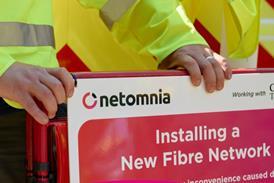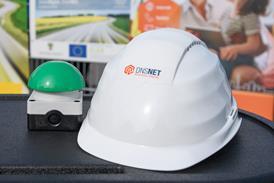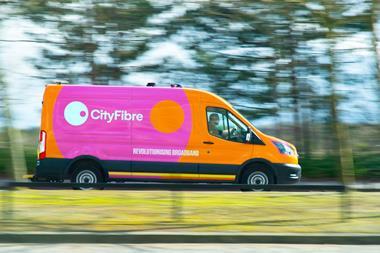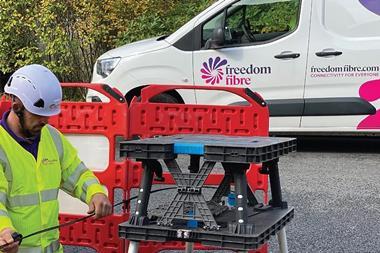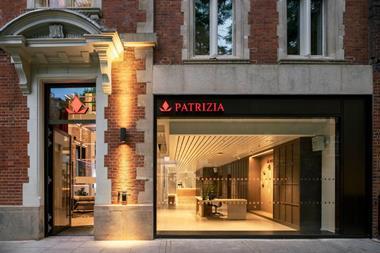- Connexin founder Furqan Alamgir warns ‘altnets’ that preoccupation with build and take‑up KPIs is jeopardising the opportunity to develop a sustainable future based on understanding customers and delivering innovative services.
- Platform partner Calix backs this ‘value-add tops megabits’ approach, with its international chief Eoin Heaney calling for altnets to see themselves as “experience providers”.
- SME segment presented as a golden opportunity for fibre challengers to strike against incumbents through solutions tailored using network and service data insights.

Furqan Alamgir is no fan of altnet.

Or rather, the CEO and founder of Yorkshire-based network builder and service innovator Connexin has no affinity with the term as a descriptor of businesses such as his. For Alamgir, the tag does not even scratch the surface of the most important element of his business — delivering distinct, valued services to consumers and organisations.
Speaking at the Connected North event in Manchester, UK, he used his presentation to emphasise a purpose‑driven perspective on the role of network players. This is not a feelgood mission statement, but a deeply considered move to template a successful business model for the challenger broadband network service provider sector, and a wake-up call to peers that may be too obsessed with rollout, take‑up and connectivity speed metrics to develop a sustainable strategy.
“ Building a network is just the beginning: it’s about asking ‘what does that network do, and what can we do with it?’. ”
Alamgir.
For Connexin, answering this question involves going beyond “dumb infrastructure”, to leverage the optical network terminal (ONT) equipment deployed in customer’s premises — to provide added value services beyond connectivity through a sophisticated, flexible platform layer.
Enter Calix.
From its early infrastructure‑building days, Connexin has worked with the US‑based communications‑focused platform provider, with a partnership that has evolved to enable the Hull-based challenger to develop relationships with, and services for, end‑users that start rather than end with installation of a router.
Through deployment of a white‑labelled version of the SmartHome proposition and Service Cloud from Calix, Connexin is able to offer its domestic customers an interactive, customisable home Wi-Fi system with simple controls via a branded app. Tangible value from SmartHome is further added through “enterprise‑level” security, which Alamgir considers is increasingly appealing to households where a growing array of devices is creating a much larger threat target area, along simple parental controls that can cover all networked devices and services.
There are benefits to this approach for the service provider, too: the Calix platform that accompanies its ONT equipment enables Connexin to monitor the network and use its data to gain insights to better understand how connections are being used. Through Calix’s Service Cloud, Connexin has end-to-end visibility into its subscribers’ experiences, enabling proactive service assistance, increased operational efficiency, and enhanced upsell capabilities.
“If you have a CCTV camera, we can see that; if you’re a gamer, we can understand that”, says Alamgir, adding that Connexin can use its platform to tailor upselling offers to users. Customers who are gamers, for example, may not only be notified that a new release available for download, but also get offered the option of a temporary connection speed upgrade for a small fee to enable a substantially faster download. “It’s all automated”, he notes, “and that’s the future of infrastructure”.
Platform approach bringing hard cash rewards and SME opportunity
The Connexin CEO said the numbers are proving the value of this approach, with average revenue per user (ARPU) in excess of £40‑per‑month (€46/$50), considerably above more usual UK service provider levels that sit between £20 and £30, with take‑up rates on bundles up 80% since the introduction of SmartHome. Connexin has also seen impressive 50% uplift in overall ARPU and a 70% reduction in post-install visits.
Provision of added value services is said to make for stickier customers, too, with retention rates considered industry‑leading, and the service provider performing well against a public scale both courted and feared by retail players — Trustpilot.
Alamgir, however, considers that too few altnets are looking to this experiential approach to building their businesses, focused instead on “spreadsheets and talk about ‘homes passed’ and ‘take‑up rates’”.
Connexin’s platform‑based and service‑led approach is also being applied in the SME sector, which Connexin sees as a significant opportunity in the UK market, and one currently under‑exploited by the altnet community.
Alamgir highlights that the SmartBiz solution, which forms the basis of its SME drive, is a targeted business proposition built on top of the Calix platform, rather than merely a re‑badged premium consumer offering, and is intended to answer the question “why do SMEs rely on connectivity?”.
With features including Wi‑Fi connectivity that can prioritise point of sale systems, capability to offer guest access for customers, and mobile backup to ensure payments can be made in the event of fixed connection loss, the service has been developed to address SME needs and concerns for an environment where absence of connectivity can lead directly to loss of business.
Another key element of the launch of SmartBiz was its speed to market, with the service up and running in around three months, enabling the Connexin to innovate agilely.
Calix champions the merits of becoming an “experience provider”
Also speaking at Connect North was Eoin Heaney, International Vice‑President for Calix, who reinforced Alamgir’s views on the most effective way to create value and stand out in the UK market.

Drawing on the Calix’s own transformation, which has seen it evolve from a hardware focus to become a cloud platform provider, and a history supporting challengers in the US market including Lumos Fibre and United Fiber, Heaney drove home the message that user experience is a key differentiator for ambitious service providers targeting both consumer and business customers, and that this can be best achieved through a software platform approach.
Heaney is upbeat on the “major achievement” of the UK’s altnet sector in accelerating build in recent years, but less so when it comes to marketing — “we really need to reset the industry”.
Foreseeing a future in the next few years when fibre will be ubiquitous, he considers that the current obsession with selling based on connection speeds will need to take a back seat.
The current limited engagement with customers seen from many altnets is having an impact on Net Promoter Scores across the industry, with Heaney ruefully noting the sector average is “not much better than the airline business”, which operates in negative NPS territory. The average score of 15 for service providers “does not reflect the value that the industry is creating”, he says.
To address this, Heaney believes the market needs to “move from being ‘connectivity providers’ to being ‘experience providers’”. Key to achieving this transition, says Calix’s international leader, is making the most of the troves of data that are available to service providers to identify and support the needs of end‑users.
Echoing the words of Alamgir and the Connexin strategy, he notes that service providers “know everything about your subscribers; you just need the right platform to be able to extract those insights and use those insights and actually market effectively and communicate effectively to your subscriber base”.
Heaney guides that Calix is already seeing the impact of this persona‑focused approach in the US market. “We have operators that don’t market speed at all”, he says, with marketing homing in on the personas they want to address with new products.
This is translating to “huge ARPU growth”, according to the Calix VP, citing a partner that sees 80% of its subscriptions coming from persona‑based solutions, which in turn is fuelling 15% ARPU uplift.
This approach cannot be isolated, however, and demands a long‑term philosophy. “Where we innovate, we have to continue to innovate”, says Heaney, pointing out that, what might be considered a novel differential today, can quickly become industry standard once its value is demonstrated.
“ You have to continue to innovate service level so that you actually do continue to add value in the context of the services you are offering subscribers… you monetise those services based on understanding your subscriber and talking to them in the language they understand. ”
Heaney.
Connexin’s evolution from VoIP to regional fibre leader
Connexin’s focus on the value of the software layer has origins that precede its foray into the fibre rollout arena.
With roots in delivering voice over Internet Protocol‑based calling services and broadband bundles, the business evolved through the acquisition in 2012 of a Hull‑based wireless broadband provider and the identification of an opportunity to build on the delivery of public Wi‑Fi to create smart city solutions and other smart infrastructure services.
Connexin has since then secured IoT contracts with local government in cities including Hull, Newcastle, and Sheffield, and secured £90m in funding with backers including Cisco.
In 2021, the business began work on building a fibre network in Hull to compete with local incumbent KCOM, and followed this up with deals to acquire local service providers Wisper Broadband and Pure Broadband as its commercial momentum grew.
Connexin is also, according to Alamgir, one of the largest suppliers of smart water meters in the UK, and has secured a contract with Northumbrian Water to connect “almost a million” meters to track use and predict demand.
Calix eyes European expansion through B2B opportunity
Transforming itself over the years from a broadband access equipment vendor to become a cloud‑based platform provider, California‑based and New York Stock Exchange‑listed Calix aims to support broadband service providers in delivering targeted value‑add services to end‑users built on data insights. With over 1,600 service provider partners, it is today a billion dollar business.
With this transformation has come a partnership‑focused approach, and strategic relationships have also been fostered with fibre network focused peers including mapping specialists VETRO FiberMap, construction management platform Vitruvi Software, and test and assurance player VIAVI Solutions.
Calix’s cloud‑based systems have made their presence felt as an alternative to legacy access network vendors. Its international expansion has seen it partner with multiple UK altnets, including leading challenger CityFibre in 2018 on the development of a software‑defined access network that enables the NetCo’s wholesale ISP customers to offer sophisticated tailored offerings to end‑users. Calix’s platform was also fundamental to the Lit Fibre network recently acquired by CityFibre. Connexin is now leading the way with its launch of Calix’s SmartLife managed services platform and the first local implementation of SmartBiz for the small- to medium-size enterprise market, following its UK unveiling in the third quarter 2023.
Topics
- Automation
- Calix
- Connected (Africa, America, Britain, Germany)
- Connected Britain
- Connected North
- Data
- Eventwatch
- Fibre (FTTC/FTTP)
- Industry Voice
- Infrawatch
- Innovation (R&D)
- IoT (Internet of Things, M2M)
- KCOM
- Network & Infrastructure
- Partnerships & Alliances
- Small business vertical (SMB/SME)
- Strategy & Change
- Sustainability (ESG - environmental, social, and governance)
- United Kingdom (UK)










